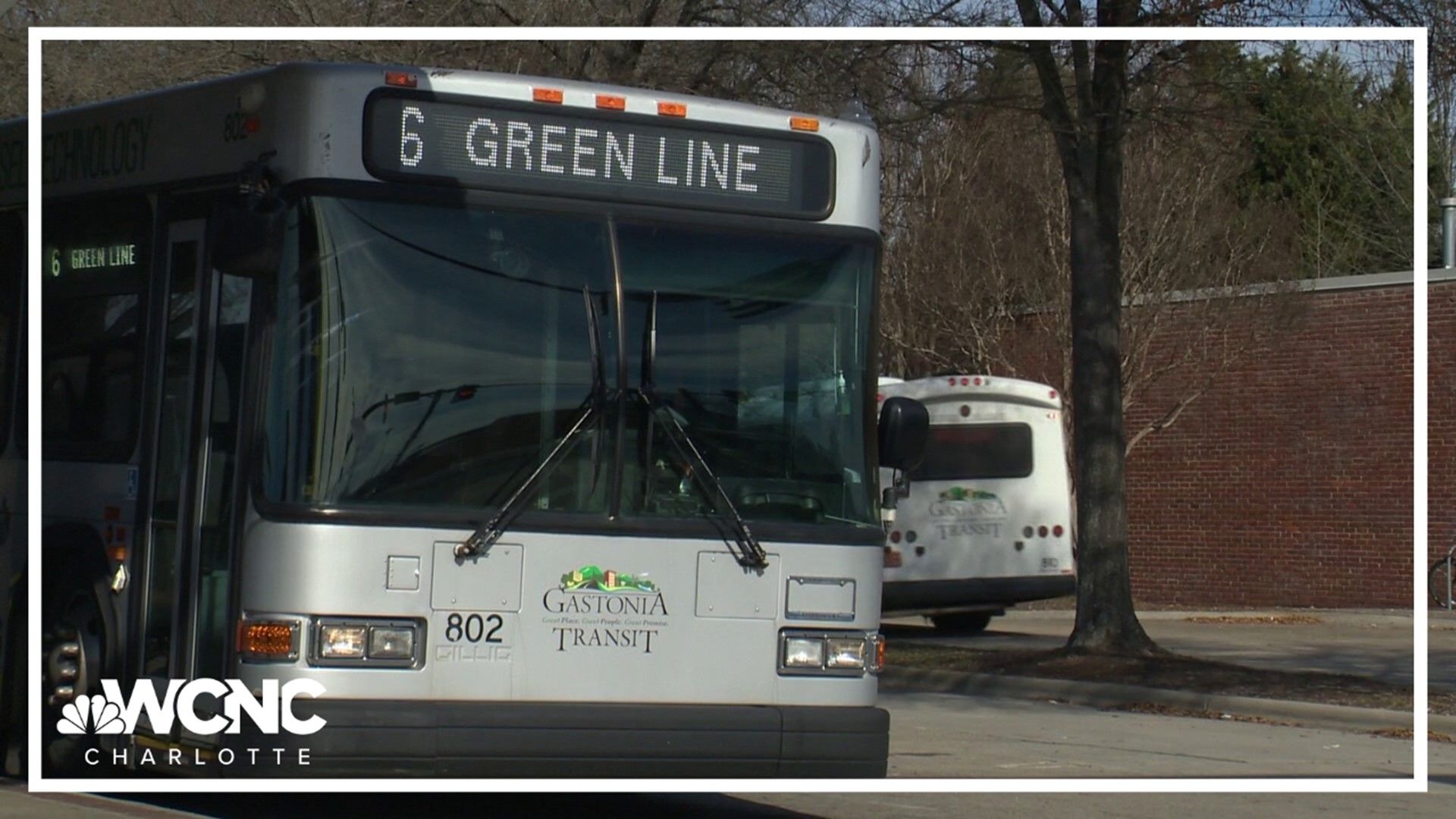GASTONIA, N.C. — Transit in Gastonia is set to pivot from fixed bus routes to on-demand microtransit in 2024 with the approval of a new contract by the Gastonia City Council.
On Wednesday, the city government announced the council had approved a 36-month contract with River North Transit to provide the new service to riders. It's set to launch on July 1, 2024, and is expected to cost $1.65 million in the contract's first year.
"We saw a need to provide on-demand microtransit transportation to our residents as our city continues to grow,” Mayor Richard Franks says in a statement. “This move away from fixed-route buses will provide cost savings and will increase accessibility for everyone in our community.”
The city touts the new microtransit service as a cost-effective option to tackle issues tied to limited service areas, long wait times, an aging fleet of buses, and lack of access to bus stops. Rather than working with fixed-route service, passengers are promised on-demand, curb-to-curb access similar to private rideshare services like Uber or Lyft.
“We see this as a way to provide equitable transportation, mobility options across our city," Gastonia Department of Transportation Director Randi Gates said.
The city said those who need a ride can book and pay for it online via computer or mobile device and then be picked up at a place of their choosing to go directly to where they want to go. Additionally, the city says riders can take spontaneous trips and not be dependent on fixed bus routes.
“Residents will experience more efficient, convenient, and personalized public transit services,” Gates said. “We are confident that this model will better serve our current transit customers and others who desire to use public transportation.”
Right now, Gastonia Transit runs six fixed routes within the city that are characterized as a "pulse" system. Most routes start and end at the Bradley Station on North Oakland Street at regular intervals. The agency covers about 295,000 miles per year and served more than 144,000 passengers in 2023. The system currently averages seven passengers per vehicle hour across all routes.
“We see empty buses," Gates said.
The goal is to provide access to even more people. It's something Charlotte's Transit System is also working towards for people who live in Huntersville, Davidson and Cornelius.
A CATS spokesperson tells WCNC Charlotte, they're hoping to launch their micro-transit system sometime later this year.
“They offer the best balance between convenience and cost effectiveness, for both the transit agencies, the cities, and the passengers that provide them," Eric Zaverl, the Urban Design Specialist for Sustain Charlotte, said.
But Zaverl says there can be a downside to this form of transit.
“I think replacing all your traditional bus routes with micro transit could result in more vehicle trips and increased traffic and congestion," Zaverl, said.
When it comes to price, Gastonia officials say it's unclear at the moment. As for the people who currently drive the buses, they're looking to put them into other city jobs. The ride share service will also host a job fair in the future.
Zaveral also states it's critical to not leave certain populations behind who rely on public transit.
“Make sure that it’s actually being effective and it’s not contributing in a negative way," Zaveral said.
The City of Gastonia notes the new microtransit service will not displace paratransit services as covered under the Americans with Disabilities Act.
Contact Lexi Wilson at lwilson@wcnc.com and follow her on Facebook, X and Instagram.
WCNC Charlotte To Go is a daily news and weather podcast you can listen to so you can start your day with the team at WCNC Charlotte.
SUBSCRIBE: Apple Podcasts || Spotify || Pandora || TuneIn || Google Podcasts || iHeart
All of WCNC Charlotte's podcasts are free and available for both streaming and download. You can listen now on Android, iPhone, Amazon, and other internet-connected devices. Join us from North Carolina, South Carolina, or on the go anywhere.

